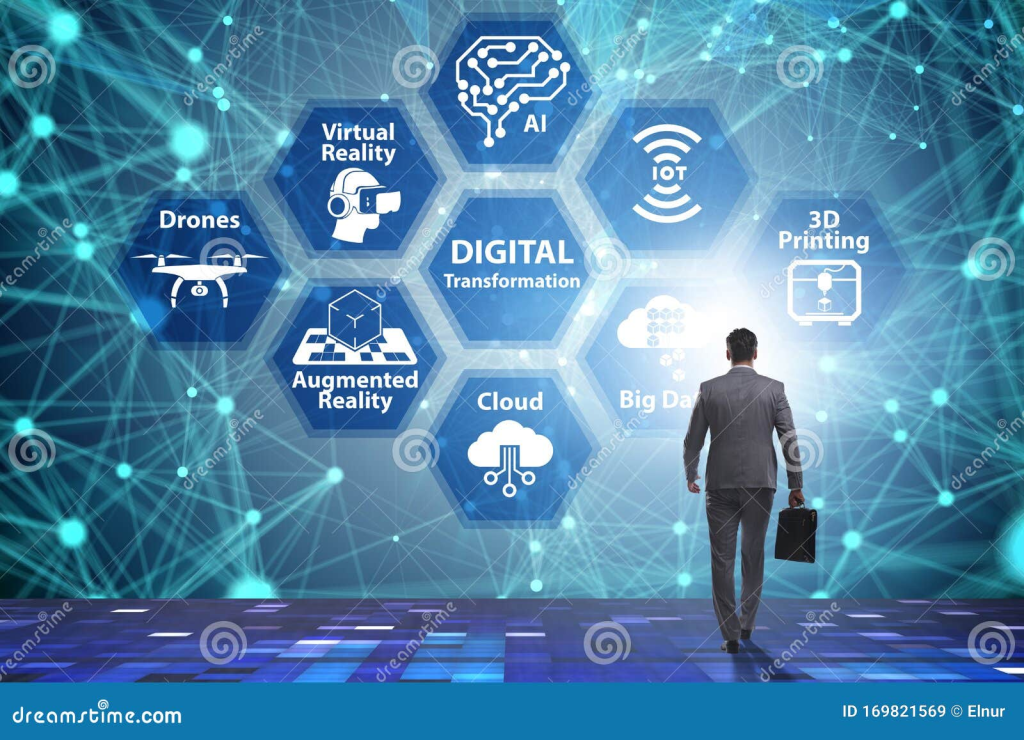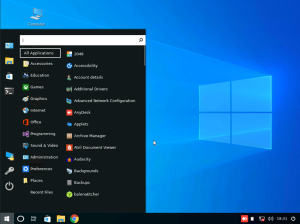Digital transformation is reshaping the business landscape, presenting both opportunities and challenges for organizations navigating this rapidly evolving technological environment. A recent study underlines that a staggering 92 percent of IT leaders foresee a rise in digital friction as new technologies, particularly AI, become increasingly integrated into workflows. However, only 47 percent of employees are equipped with the digital dexterity needed to leverage these advancements effectively. This gap is concerning, especially as IT spending is projected to soar to $5.61 trillion by 2025, with a significant portion allocated to generative AI investments. To maximize benefits and enhance the employee experience, organizations must prioritize resolving digital friction—a crucial step to ensuring that both technology and talent coalesce towards success.
The evolution of technology adoption within businesses is often referred to as digital evolution or technological advancement. This transformation is characterized by an increasing reliance on digital tools that are aimed at enhancing operational efficiency and employee collaboration. Yet, to harness the full potential of these innovations, companies must focus on developing their workforce’s digital skills, often termed digital competency or fluency. As organizations implement new applications and systems at a rapid pace, the importance of a seamless employee experience becomes paramount. By addressing the challenges of digital friction and fostering digital dexterity, businesses can ensure they are not just keeping pace with technological trends, but actively leveraging them for growth and success.
The Importance of Digital Transformation for Employee Experience
Digital transformation is not just a technological shift; it’s a foundational re-imagination of how organizations operate and deliver value to employees and customers. As businesses invest in new technologies, they must ensure that their digital transformation efforts prioritize the employee experience (DEX). The connection between technology and employee well-being has never been more crucial, as 92 percent of IT leaders predict that rapid advancements could lead to increased digital friction, leaving employees feeling overwhelmed. To foster a thriving work environment, organizations must actively engage their workers in this transformation process, enhancing their digital dexterity and enabling them to harness new tools effectively.
Moreover, as organizations shift towards a more tech-centric ecosystem, IT leaders must recognize that simply introducing new tools is not sufficient for success. Employees need the right support and resources to navigate these changes confidently. Leaders must assess and enhance employee engagement through tailored DEX insights, ensuring that teams feel equipped to embrace emerging technologies like generative AI. By prioritizing employee experience within the digital transformation strategy, organizations can reduce digital friction significantly and maximize the impact of their technology investments.
Frequently Asked Questions
What is digital transformation and how does it affect employee experience?
Digital transformation refers to the integration of digital technology into all areas of a business, fundamentally changing how it operates and delivers value to customers. This shift significantly impacts employee experience, as adapting to new technologies and processes is crucial for workforce efficiency and satisfaction. Without adequate support and training, employees may face digital friction, leading to frustration and decreased productivity.
How does digital dexterity relate to successful digital transformation?
Digital dexterity is the ability of employees to adapt and thrive in a digital environment. It plays a critical role in successful digital transformation because a workforce lacking in digital dexterity may struggle to effectively use new technologies. Enhancing digital dexterity through training and resources can help minimize digital friction and improve employee engagement with new tools.
What challenges do organizations face regarding AI investments amidst digital transformation?
Organizations often face challenges in quantifying the financial return on AI investments as part of their digital transformation efforts. A significant 42 percent of IT leaders recognize difficulties in measuring these returns, compounded by digital friction caused by unfamiliar tools. Addressing these challenges requires a focus on improving digital dexterity and providing adequate support to help employees adopt AI technologies effectively.
Why is IT spending important for digital transformation?
IT spending, projected to reach $5.61 trillion by 2025, is crucial for digital transformation as it funds the technologies and innovations needed to enhance business processes. However, without a strategic focus on empowering employees and reducing digital friction, these investments risk underperformance. Ensuring that employees are equipped with digital dexterity is essential to maximize the benefits of IT spending.
How can organizations improve digital adoption to reduce digital friction?
Organizations can improve digital adoption by implementing tailored training programs that address digital dexterity gaps among employees. Providing user-friendly resources and ongoing support will help employees become more comfortable with new applications and technologies, ultimately reducing digital friction. Additionally, IT teams should leverage DEX insights to identify and address specific challenges faced by users.
What role does employee experience (DEX) play in digital transformation success?
Employee experience, or digital employee experience (DEX), is pivotal to the success of digital transformation initiatives. A positive DEX fosters higher engagement, productivity, and satisfaction among employees, which are crucial for navigating new technologies. If organizations neglect DEX, they risk facing increased digital friction that can thwart their transformation efforts and limit the value derived from IT investments.
What is digital friction and how does it impact digital transformation efforts?
Digital friction refers to the obstacles employees face when interacting with new technologies. It can significantly hinder digital transformation efforts by decreasing productivity, increasing support requests, and leading to employee dissatisfaction. Addressing digital friction through training and support is essential for a smooth transition to new technologies and to ensure that investments in digital transformation yield successful outcomes.
What trends are driving changes in IT spending for digital transformation?
Current trends indicate that organizations are increasingly investing in AI technologies as part of their digital transformation strategies, with expected IT spending reaching over $644 billion specifically for generative AI. These trends drive the need for enhanced digital dexterity among employees, as more tools and applications are introduced. To manage these changes, organizations must focus on supporting workforce adaptation and minimizing digital friction.
How can IT leaders measure the impact of digital transformation investments?
IT leaders can measure the impact of digital transformation investments by tracking key performance indicators (KPIs) related to employee engagement, productivity, and satisfaction. Implementing DEX insights can help quantify the value of digital transformation efforts by identifying how well employees are adapting to new tools and processes, ultimately allowing leaders to assess the return on their IT spending effectively.
| Key Point | Statistic/Quote |
|---|---|
| High Digital Friction Expectation | 92% of IT leaders believe digital friction will increase in the new era of transformation. |
| Lack of Digital Dexterity | Only 47% of employees have the required digital skills to adapt. |
| Overwhelming Technology Adoption | 88% expect workers to feel overwhelmed by technologies like generative AI. |
| Projected IT Spending | IT spending may reach $5.61 trillion by 2025, with $644 billion for generative AI. |
| Challenges in AI Investment | 42% of IT leaders struggle to quantify AI investment value. |
| Critical Need for Digital Dexterity | Without digital dexterity, AI investments are at risk of failing. |
| Rapid Application Growth | Respondents anticipate a 43% increase in applications over 3 years. |
| IT Challenges | 69% of IT teams can’t adequately support all users. |
| Consequences of Poor Guidance | 61% decrease in productivity and 46% increased dissatisfaction reported. |
| Importance of Digital Experience (DEX) | 96% of IT leaders want to improve digital adoption support. |
Summary
Digital transformation is reshaping the business landscape, but it comes with significant challenges that must be addressed. A pivotal study reveals that most IT leaders perceive an increase in digital friction, with many employees lacking the necessary skills to navigate new technologies effectively. As organizations ramp up their IT investments, particularly in generative AI, it’s critical to focus on enhancing employee digital dexterity to ensure successful implementation and maximum ROI. The intersection of technology and employee experience will determine whether digital transformation initiatives thrive or falter, suggesting that businesses must prioritize comprehensive training and support to empower their workforce.




